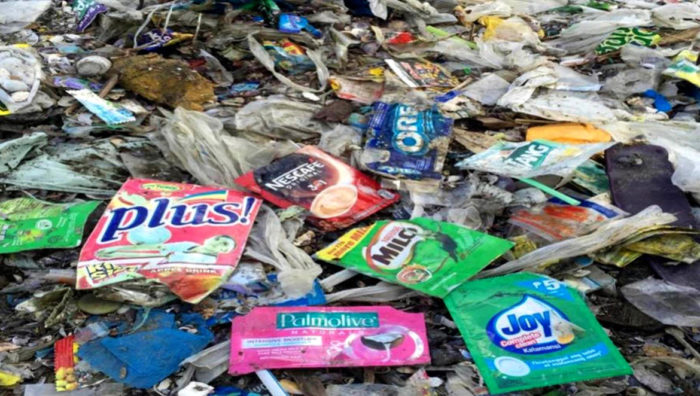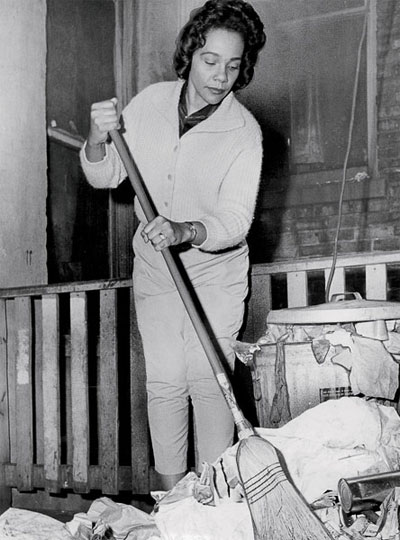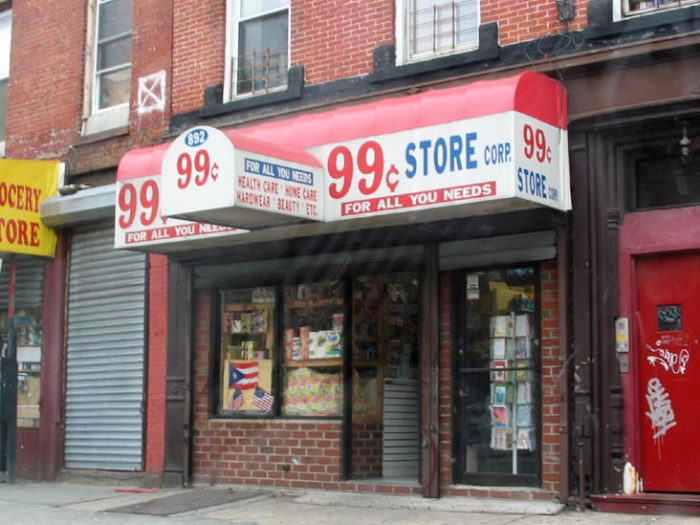How Close Are We To July 4th, 1775?
When I describe how I take two years to fill a load a garbage in part by buying fresh farmers market produce, I’m usually talking to people who can afford more than I can. They eat out, order takeout, buy bottled water, and eat a lot of meat without worry. Still, they say farmers markets cost more.
When I tell them I pay less than the average American on food, their defense crumbles. Many of them come up with “You don’t know what it;s like to be a single mother in a food desert with three kids and three jobs.” None of them do either, but they continue to lecture, “They can fill their children’s bellies for less money at McDonald’s than with salads, which they don’t have time to make either.”
I believe they’re implying I’m insensitive or ignorant about people less fortunate, but we’ll see they’ve gotten everything backward then. I think they’re really trying to make themselves feel less twisted up inside for paying more for unhealthy food, as if their “inside knowledge” put them in brotherhood or sisterhood with them. “You see,” they feel, “I order takeout because I’m like her, unlike privileged you, Josh, who eats high on the hog.”
Let’s go there.
A scene in the documentary The Story of Plastic shows a product being sold two ways. In affluent Europe, it sold in a bottle, maybe a liter. In a poor part of Southeast Asia, it sold in a single-use sachet. The main point of the movie was how much more plastic per use the poor one used. The European bottle was designed for recycling and facilities likely existed to recycle it. Sachets comprise many materials and can’t be recycled. Asia was already choking in plastic sachets. More so today, increasingly joined by the rest of the world.

A minor point was the higher cost per use of the sachet, despite a lower initial cost. More important for Unilever, Proctor & Gamble, or whoever produced it, the customer had to keep buying more. Unilever charges them more overall, which impoverishes them, which keeps them locked into the low-initial-cost-high-upfront-cost cycle. Unilever, Proctor & Gamble, and their peers benefit from poverty and reinforce it.

The business model goes back millennia. I think of it as the payday loan model. Rich people get low interest rates. Poor get high ones. Money flows from poor to rich, the world over.
Martin Luther King’s Chicago Freedom Movement led him to live with his family in a Chicago slum, where he said,
We are tired of having to pay a median rent of $97 a month in Lawndale for four rooms while whites in South Deering pay $73 a month for five rooms. We are tired of being lynched physically in Mississippi, and we are tired of being lynched spiritually and economically in the North.
They were locked in by skin color:
Even after the U.S. Supreme Court declared restrictive covenants unenforceable, discriminatory schemes to keep blacks out of white areas persisted. The most notorious was redlining, the refusal of banks and insurance firms to issue or insure mortgage loans in predominantly black neighborhoods, which would often get delineated on city maps with a red line.
His wife, Coretta Scott King, wrote
Our apartment was on the third floor of a dingy building, which had no lights in the hall, only one dim bulb at the head of the stairs. As we walked in, the smell of urine was overpowering. We were told that this was because the door was always open, and the drunks came in off the street to use the hallway as a toilet.

Locked in, they paid more for less:
Customers in these neighborhoods almost always paid more for less. Says [Southern Christian Leadership Conference secretary Mary Lou] Finley: “I remember going to a grocery store and finding Grade B eggs. Never in my life had I seen Grade B eggs anywhere! And they cost the same as Grade A or AA eggs in other grocery stores.” One day, she recalls, a colleague followed a delivery truck that picked up boxes of expired potato chips from a suburban supermarket and brought them to grocery stores on the West Side. “The ghetto was a dumping ground,” says Finley.
Absentee landlords and shop owners jilted them on rent, facilities, groceries, and every cost they could squeeze them on.
In many ways, times haven’t changed. Lately I’ve been riding my bike around Brooklyn and Queens. As I ride from, say, around Prospect Park, which is affluent, south along Flatbush Avenue, it becomes less affluent. If I go off Flatbush, less affluent still. It reminds me of growing up on Rockland Street, in Germantown, and going to school in North Philadelphia, all places I got mugged and beat up, where they gave out welfare sandwiches.
Back to Brooklyn today, though, I see the pattern common to every city. In rich neighborhoods, stores sell quality that lasts. In poor ones, you see 99-cent stores, dollar stores, and the equivalent of sachets. Low up-front costs, but you have to keep buying.

The flow of money goes from poor to rich. It seems backward. Don’t the rich help the poor? Some do, but then you realize, the only way people can become rich while others become poor is the money flows from poor to rich. Many of today’s richest businesses and people amass their money by fleecing poor people locked in like Dr. King was. Walmart, McDonald’s, the Sackler family, Apple, big tobacco, Amazon, cheap liquor stores with their airplane bottles, and their peers get you hooked so you can’t get away and you have to keep buying. All payday loan strategy.
I learned from business school one of the most profitable business strategies was “customer captivity.” I learned that geographic lock-in worked best, which redlining provided then and persists through its momentum today. These businesses figured out how to push out competition and often motivate legislators to give them subsidies and other advantages to discourage competition, a process called “regulatory capture.” I have to pay some of McDonald’s costs, for example, through government subsidies, while the farmers I buy vegetables from have to pay full price. Fair or not, Jeff Bezos became the world’s richest man from poor people who could only get cheap stuff from his store after he pushed out the competition. When people suggest stopping using Amazon online, others say they have no choice. Payday loans.

When my rich friends tell me poor people can’t shop at farmers markets, they imply they’re just like them for not shopping at them either, but they miss that they’re helping fund the payday loan cabal. They’re accelerating the system making people poor and locking them in.
There are ways out. When I was a baby in the early 1970s, when my parents were still married, they settled in Philadelphia. I understand they were effectively redlined in that they couldn’t buy houses in some neighborhoods because of their religion. In any case, after settling, they grouped with about ten other families. Every ten weeks, they took turns driving at 5am to South Philly’s produce distribution center to buy in bulk for ten families. If Rocky Balboa were real, they might have passed him on his way to the Art Museum steps. Buying in bulk in person meant lower prices and higher quality. A group of ten meant only one morning every two and a half months.
It also meant community. Eventually that group folded into the coop, Weavers Way, that became a touchstone of my childhood and I’ve written about before. My father still shops there as his primary store, as member number 55. New members start in the five digits today. My mom’s second husband, I believe, helped found Weavers Way before my family’s group folded in.
I belong to a coop here in New York. I belong to a credit union. I haven’t needed a payday loan, but if I did, since I’m part owner, they wouldn’t charge me payday loan rates. By shopping at farmers markets, I help drive demand for more farmers markets. Likewise when I give demonstrations to buy from them cheaper and to cook from scratch even if you don’t live near one or have time to shop at them that often.
The people who lecture me may understand that Amazon and the rest of the payday loan cabal aren’t doing anyone any favors. They’re impoverishing and creating the situation they think I somehow don’t know about. Yet, when they shop with them and not at farmers markets, they’re exacerbating the situation.
If payday cabal members suggesting their low prices are helping people wanted to help the poor instead of profit from them, they’d help them form credit unions, coops, farmers markets, day care cooperatives, and so on. They’d help develop independence. They don’t. Independence is the opposite of their business plan—customer captivity and regulatory capture.
Independence. The concept brings us to July 4th, Independence Day in the United States, my home, land that I love. As we saw, customer captivity maintained with regulatory capture is the opposite of independence. If someone is locked in, lacking freedom, do I care if the government form a monarchy or regulatory captured democracy?
For most Americans, now may be the best time in history. I’m one of them. I live in material abundance with freedom out the wazoo, beyond nearly anyone in history. I love it. I work hard to expand that freedom to others. I do everything I can not to take it for granted. On July 4th, I read our Declaration of Independence, some of our Constitution, or similar works. I saw a few men in uniform a few hours ago and spoke to them briefly to express my appreciation.

Many Americans lack that freedom. Some years ago the document I read was Frederick Douglass’s “What to the Slave Is the Fourth of July?“. Many Americans live between my condition and his.
My questions to you: How many live there between your freedom and Douglass’s? Where on the continuum? How close are we to July 4th, 1775? What can we do to bring them more freedom? What are you doing, specifically?
I mainly focus on the environment, but I work on changing systems. Our environmental systems are intertwined with our economic systems, so my work to reform the former overlap with reforming the latter. I hope that people get that accepting Amazon, Walmart, and the rest of the payday loan cabal, let alone shopping there, I see as deepening their lock-in, decreasing freedom. All my actions are trying to bring poor people coops, farm-fresh food, and independence.
Read my weekly newsletter

On initiative, leadership, the environment, and burpees